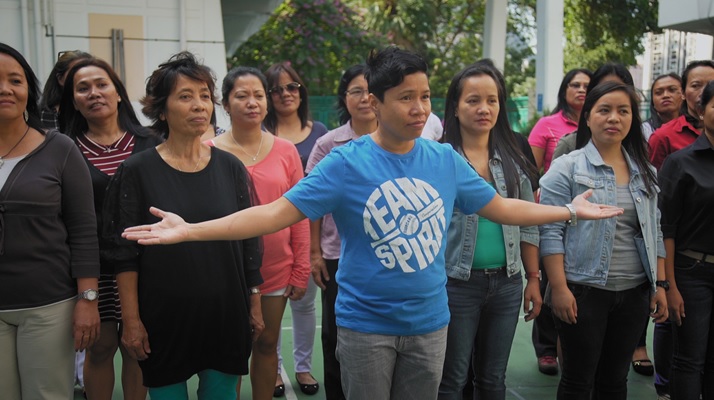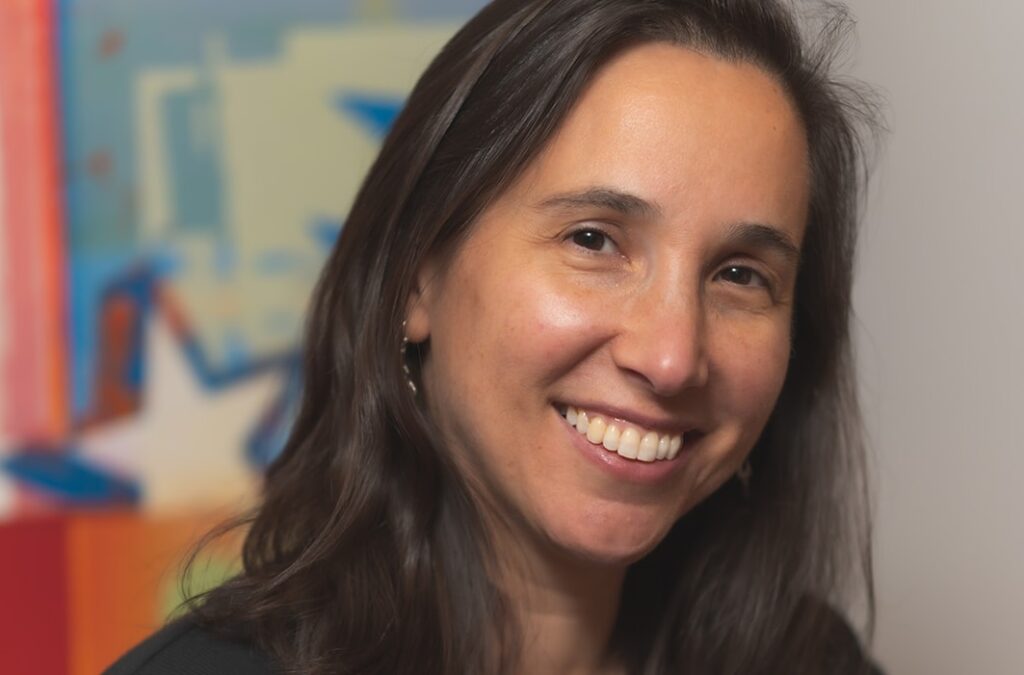Guest Post by Joanna Bowers
I moved to Hong Kong from Los Angeles in 2011 and quickly realized that I couldn’t have chosen two cities more different than one another. Leaving the sprawling, laid-back metropolis of LA, I was suddenly immersed in the vibrant in-your-face sights and smells of the fast-paced culture clash that is Hong Kong. During my first weekend there, I navigated the elevated walkways of Central district on my way to view apartments to rent. I was confronted with the arresting visual of thousands of women sitting out on the street in temporary cardboard shelters sharing food, doing each other’s nails, and catching up with one another. At first I wondered if they were homeless but they seemed to be having too good of a time for that to be the case. And they didn’t appear to be protesting as there were no visible signs or slogans displayed. I didn’t have the slightest clue what they were doing there.
A local friend kindly explained they were Hong Kong’s migrant domestic workers, originally from the Philippines and Indonesia. The majority of these women don’t have private space of their own for downtime, sharing bedrooms with young children or sleeping in tiny “maid” rooms/cupboards, so they are keen to flee their cramped apartments — where they live with three generations of a family — on their one day off.
As time went on, I got to know several domestic “Helpers” as the Hong Kong government describes them, despite their officially contracted employment status. A very high percentage of families with children in Hong Kong employ one and many of my friends’ families have their own “Auntie,” as they are often known. These women take on the uniquely multi-faceted role of nanny/cook/cleaner/caregiver in a country far from home integrating into a family from a very different culture.
“Helpers” often feel they have no choice but to come here to work because their earning potential is so much greater than where they are from, so they migrate in an attempt to create a better life for children left behind in their home countries. The money they send home goes towards paying school fees or for their homes, or the income is saved with the hopes of one day realizing the dream of returning home to start a business.
As a filmmaker I felt compelled to document these women’s stories and share them with the world — “Helpers” are such an overlooked, invisible sector of society despite being the backbone of Asia’s financial center and allowing so many women to return to the workforce after having children.
In 2015 the Hong Kong employer of Indonesian domestic helper Erwiana Sulistyaningsih was sentenced to six years in prison for physical assault and suddenly the term “Domestic Helper” became global news. I decided this was the right time to help tell their stories: I wanted to make a film that would find an audience beyond just the region, and this was evidence that there was international concern. So we launched a Kickstarter campaign to fund the production. I set out to make a film that put faces to this issue with the goal of creating a shift in perceptions about migrant domestic workers. I hoped the project would improve their treatment and living conditions.
While all of this was going on, I found out that I was pregnant with my first child. And then we headed full swing into filming.
In making this documentary I got to know a group of women who became such a humbling inspiration to me, and my heart broke as I witnessed them confronting their worse fears and then picking up the pieces and continuing to be incredible mothers even in absentia.
A few months later, as I sat in an edit suite nursing my three-month-old daughter, their strength really hit home. More often than not, when their child reaches that same age is when migrant domestic workers will end their maternity leave and return to work abroad. As I looked down at the infant in my arms I became acutely conscious of my privileged position in the world due to my place of birth, and my admiration for their maternal sacrifice grew exponentially.
Nobody migrates if there is another option, particularly when it involves exposing your children and making them vulnerable to external risks beyond your control. This is what I very much wanted to show with this film.
We called the completed film “The Helper” partially as a nod to the 2011 period drama “The Help” about African-American women working in white households in Mississippi in the 1960s, hoping audiences would recognize the parallels between these stories. “The Help” explored themes of class and racism that are very relevant to my heroines’ stories today.
“The Helper” premiered in Hong Kong in October 2017 and the response has been overwhelming. People have reached out every day to share how impactful they’ve found it and how they now view the domestic worker who sat on the bus next to them in a totally different light. The migrant workers profiled have told me that that they feel the film has given audiences an opportunity to become more compassionate towards them. Many “Helpers” have been approached by strangers commending them on their bravery and inspirational acts.
My hope for our international release is that, by sharing access and insight into the lives of migrant women globally, it might increase empathy for the millions of migrants scattered throughout the world at this time.
“The Helper” will be available globally on PPV and iPPV platforms and DVD/BluRay beginning July 24. You can find out more information about the film on its website.
British director Joanna Bowers began her journey in the UK studying Broadcast Journalism before relocating to LA where she launched her career working in commercial production. After stints in television development and casting, her directing career began in 2009 before relocating to Hong Kong, where she is now based. “The Helper” is her feature debut. She is currently filming a second feature in Asia and developing other original film and television projects set in the region.







